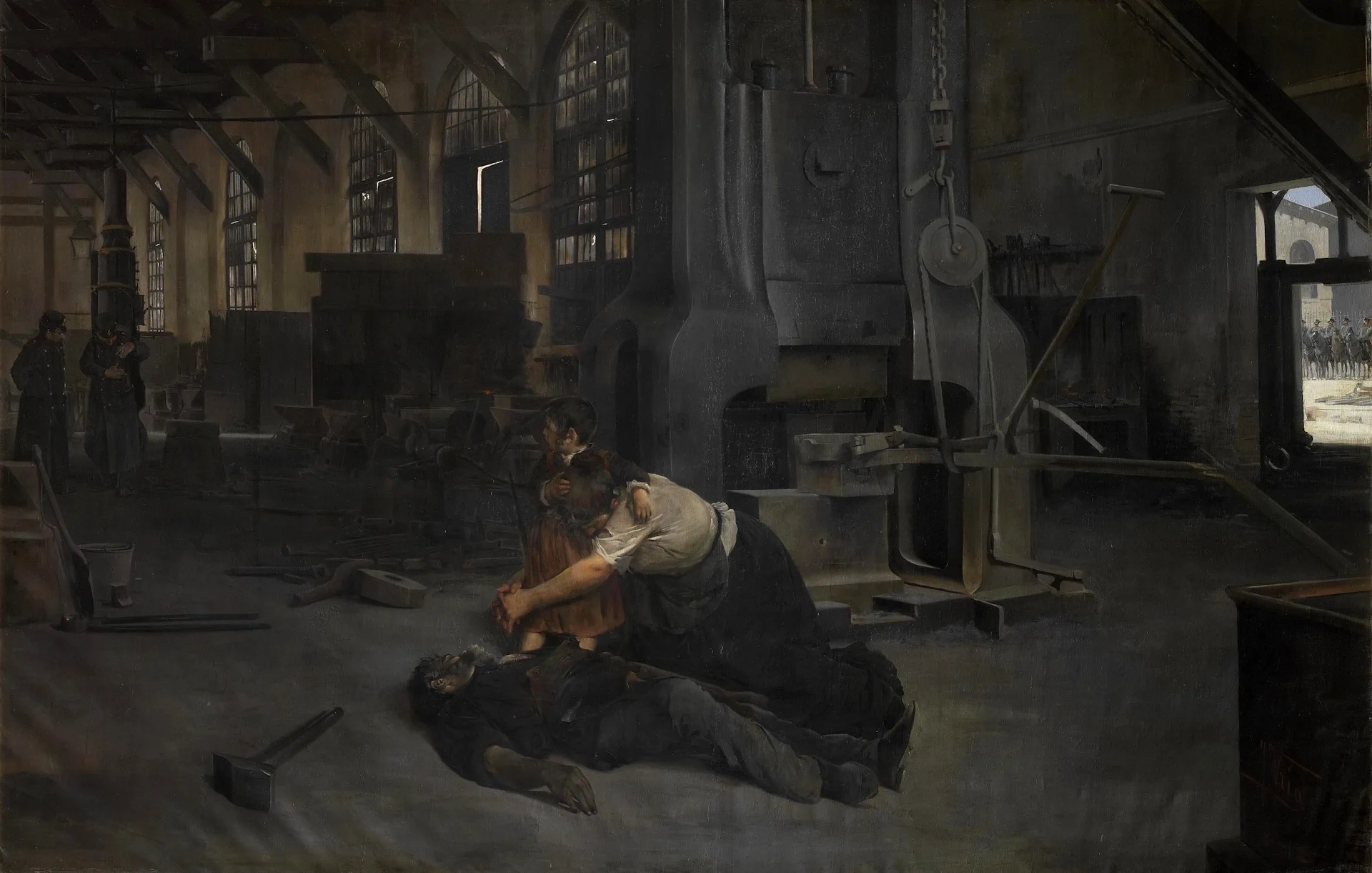
Man’s End is Not Material
by Irenaeus
10.5.23
This article was originally delivered as a sermon in September 2023 and has been adapted for print.
“Nothing is more useful than to look upon the world as it really is, and at the same time to seek elsewhere… for the solace to its troubles.” Rerum Novarum.
In today’s theological climate, it would be a mistake to discount the Social Teaching of the Catholic Church as something liberal or progressive. The Church very much has something to teach us about society, and culture, and the God given rights to man for his own sanctification and salvation.
On May 15, 1891, His Holiness, Pope Leo XIII, issued his famous encyclical Rerum Novarum. The encyclical was primarily about capital and labor, but can certainly be extended to a broader theme for society today. As we often find with Church documents after the fact, he was quite prophetic.
Rerum Novarum demanded an end to the exploitation of the worker for the sake of acquiring more money. The immorality of unchecked capitalism, and the growing grumblings of evil communism, were well in place by the time of the encyclical.
Pope Leo also spoke of the importance of the rights of parents over their children, as he said: “The socialists, therefore, in setting aside the parent and setting up a State supervision, act against natural justice, and destroy the structure of the home.” Something very prophetic as we face a new Issue 1 this November, on the supposed right to abortion. Which all Ohio residents, absolutely, have the moral obligation to vote against.
In Pope Leo’s day, the world was growing more and more divided—between rich and poor, liberal and conservative, religious and non-religious, to name a few. Different agitators sought to use the miserable conditions of the average person to gain what they wanted. We must remember that these agitators—then and now—ultimately do not have the average person’s best interest at heart. They only seek to promote their own agenda. We must be educated and inform others of this. As Pope Leo declared: “crafty agitators are intent on making use of these differences of opinion to pervert men’s judgments and to stir up the people to revolt.” He went further: “It is a capital evil with respect to the question We are discussing to take for granted that the one class of society is of itself hostile to the other, as if nature had set rich and poor against each other to fight fiercely in implacable war.”
Unfortunately, the world did not heed Pope Leo’s call. In 1917, less than a quarter century after his words, the Bolsheviks successfully agitated the Russian people into a revolution based on communist ideals. Ideals we still live with to this very day, and ideals that have caused the deaths of nearly half a billion people.
The same errors lie at the root of both communism and unchecked capitalism: the gross exploitation of human nature and the failure to understand man’s true end and purpose. Both systems exploit man’s selfishness and fears. This is the case in unchecked capitalism’s unceasing demand to gain more material possessions and in communism’s promise that equality in this life is possible, but only after we take it by force from those who have in order to give to those who have not. Both place man’s happiness and end in the acquisition of material goods. And all while the agitators gain more wealth, power, and control.
This is something for us to consider in our own lives. How do we view the purpose of all that we have been given and possess? That question, when answered well, explains why the Christian religion is despised. As the Gospel says, we cannot serve both God and mammon (which, as St. Augustine explains, is another word for riches).
I conclude with a final quote from Pope Leo to help us answer these questions:
“The things of earth cannot be understood or valued aright without taking into consideration the life to come, the life that will know no death. Exclude the idea of futurity, and forthwith the very notion of what is good and right would perish; nay, the whole scheme of the universe would become a dark and unfathomable mystery. The great truth which we learn from nature herself is also the grand Christian dogma on which religion rests as on its foundation—that, when we have given up this present life, then shall we really begin to live. God has not created us for the perishable and transitory things of earth, but for things heavenly and everlasting; He has given us this world as a place of exile, and not as our abiding place.”
“As for riches and the other things which men call good and desirable, whether we have them in abundance, or are lacking in them—so far as eternal happiness is concerned—it makes no difference; the only important thing is to use them aright. Jesus Christ, when He redeemed us with plentiful redemption, took not away the pains and sorrows which in such large proportion are woven together in the web of our mortal life. He transformed them into motives of virtue and occasions of merit; and no man can hope for eternal reward unless he follows in the blood-stained footprints of his Savior. ‘If we suffer with Him, we shall also reign with Him.’ Christ’s labors and sufferings, accepted of His own free will, have marvelously sweetened all suffering and all labor. And not only by His example, but by His grace and by the hope held forth of everlasting recompense, has He made pain and grief more easy to endure…”
Let us follow Christ, the Son of God; not mammon, the shared idol of communism and unchecked capitalism.
This article was published under Cincinnati Thought’s Pseudonym Policy.